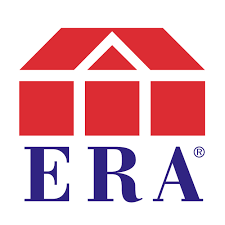记忆方法
将“era”与“air”进行关联记忆。想象“era”就像是某个历史时期的“air”(空气),它包围着那个特定的时间段,象征着那个时代的特征和氛围。通过这样的视觉联想,可以帮助你记住“era”表示“时代”或“时期”的含义。
以上内容由AI生成, 仅供参考和借鉴
中文词源
era 时代,纪元
来自拉丁词aera, 铜钱,计算筹码,拉丁词aes的复数,铜,铜钱,词源同ore, estimate. 后来用来指一个新的时期的开始,纪元。参照汉语铜钱名如开元通宝,康熙通宝等。
英语词源
- era
-
era: [17] In ancient Rome, small discs or tokens made of ‘brass’ (Latin aes, a descendant, like English ore [OE], of Indo-European *ajes) used for counting were known as area. In due course this developed the metaphorical meaning ‘number as a basis for calculation’, and from around the 5th century AD it came to be used in Spain, North Africa, and southern Gaul as a prefix for dates, some what analogous to modern English AD.
By extension it was then applied to a ‘system of chronological notation, as dated from a particular event or point in time’, the sense in which English acquired the word. The more general ‘historical period’ is an 18thcentury semantic development.
=> ore - era (n.)
- 1716, earlier aera (1610s), from Late Latin aera, era "an era or epoch from which time is reckoned" (7c.), probably identical with Latin aera "counters used for calculation," plural of aes (genitive aeris) "brass, copper, money" (see ore, also compare copper). The Latin word's use in chronology said to have begun in 5c. Spain (where the local era, aera Hispanica, began 38 B.C.E.; some say because of a tax levied that year). Other ancient eras included the Chaldean (autumn of 311 B.C.E.), the Era of Actium (31 B.C.E.), of Antioch (49 B.C.E.), of Tyre (126 B.C.E.), the Olympiadic (July 1, 776 B.C.E.) and the Seleucidan (autumn 312 B.C.E.). In English it originally meant "the starting point of an age" (compare epoch); meaning "system of chronological notation" is from 1640s; that of "historical period" is from 1741, as in the U.S. Era of Good Feeling (1817) was anything but.
权威例句
- 1. As the era wore on, she switched her attention to films.
- 随着这个时代慢慢过去,她把目光投向了电影业。
- 2. The end of an era presupposes the start of another.
- 一个时代的结束意味着另一个时代的开始。
- 3. In the mass production era multinational firms tended to centralize their operations.
- 在大规模生产的时代,跨国公司往往实行集权化经营。
- 4. This is a film which seems to hail from the hippie era.
- 这看起来是一部嬉皮士时代的影片。
- 5. I just love the fun of dressing up in another era's clothing.
- 我就是喜欢穿另一个时代的衣服玩。

